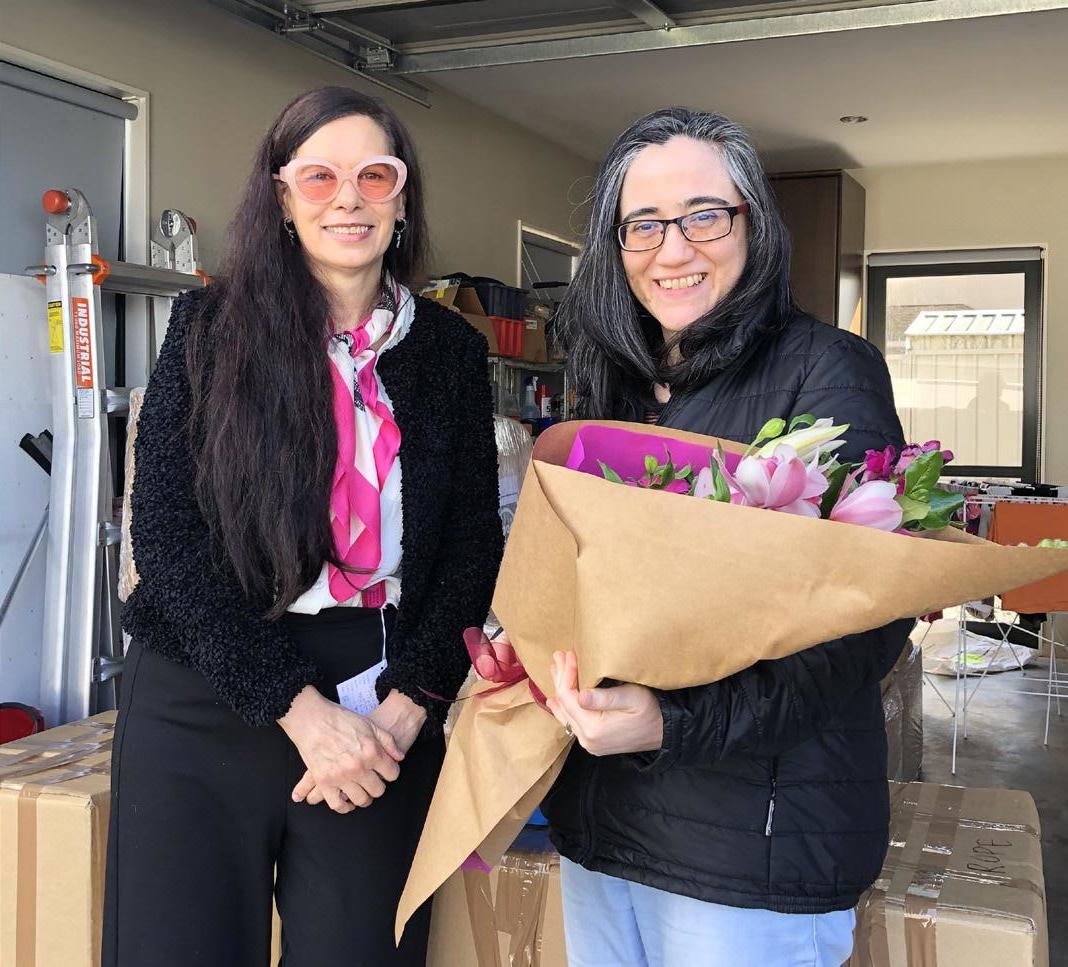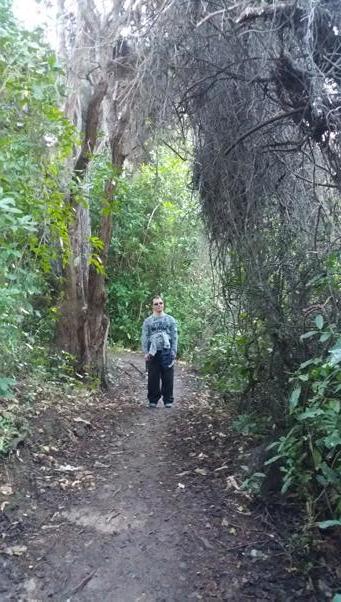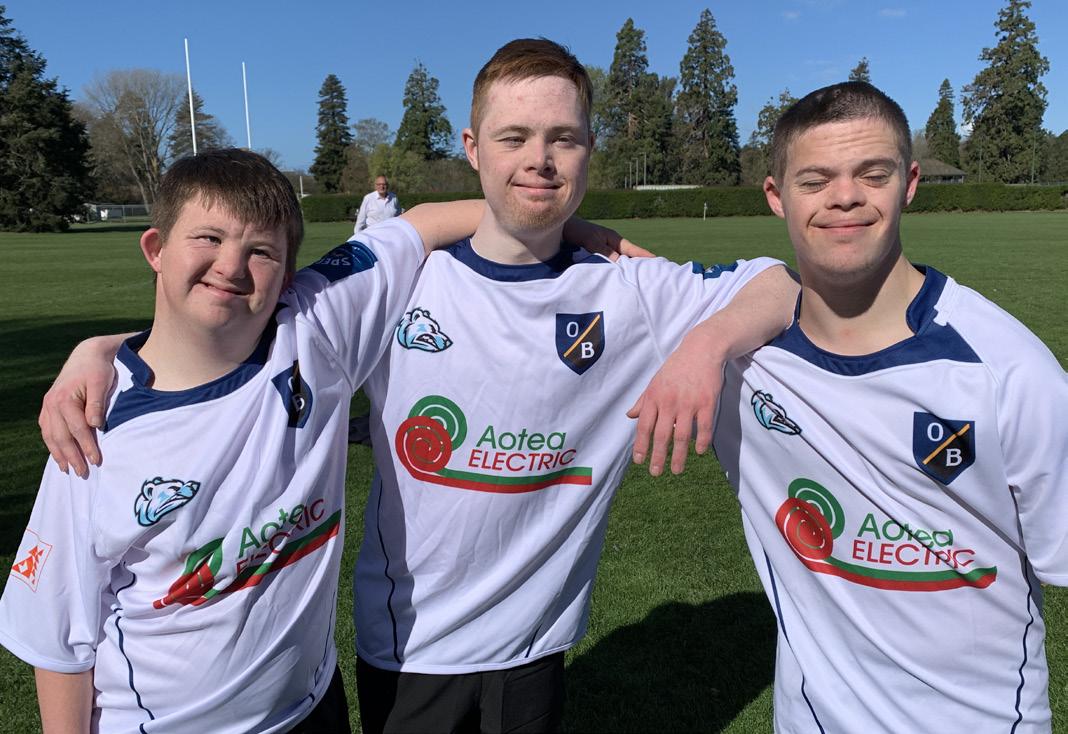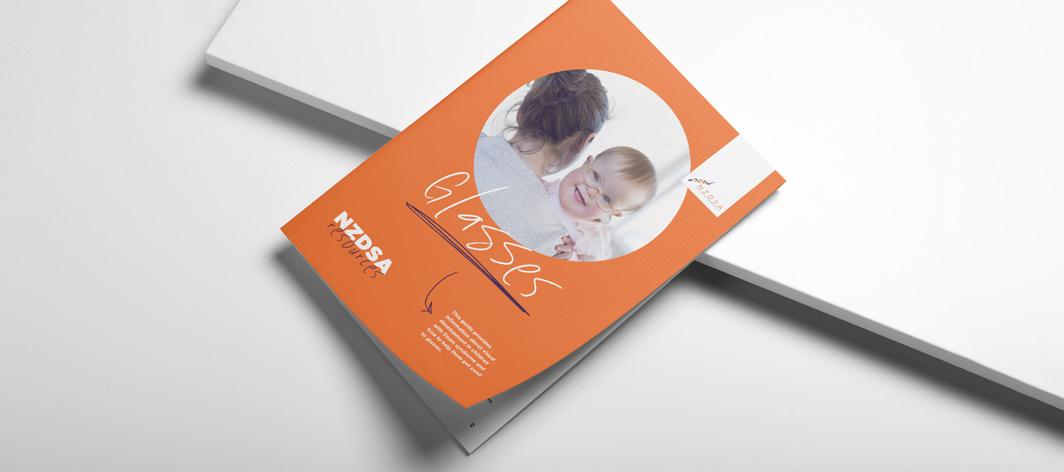
7 minute read
ALL POLICY ISSUES ARE DISABILITY POLICY ISSUES
By Zandra Vaccarino National Executive Officer NZDSA
Kia Ora,
The Disability Sector Election Event was themed “All policy issues are disability policy issues” which really resonated with me as I believe that legislation and every Government policy, plan or guideline will serve to include, enhance or exclude participation and leadership of disabled people in society. I also believe that all qualitative and quantitative reports, not just government reports, become vehicles to drive and influence change. Whilst we know that all Government policy should be developed with a disability perspective lens and should consider the needs and aspirations of disabled people and their family and whānau, we still see policy that fails to reflect how the rights of disabled people outlined in United Nations Convention on the Rights of Disabled People are facilitated, protected or upheld. The value of changing legislation, policies and plans is that it makes universal change and if done correctly, can bring about transformation which will see all people, including disabled people enjoying full citizenship rights. ongoing work of Access Alliance and all their supporters that the Cabinet Social Wellbeing Committee agreed on the 28 July 2020 to push ahead with drafting an accessibility legislative framework. This new legislative framework will act as a vehicle for progressive implementation of accessibility.
Significant policy changes
The past three months has also seen other changes to legislation, policies and plans. I will not mention everything, but I will highlight a few that you might be interested in exploring further.
Education and Training Act 2020 The Ministry of Education states that the Education and Training Act is the “biggest rewrite of education legislation in decades". It aims to give all children and young people a high-quality, culturally responsive, seamless and inclusive education from early learning, through schooling, and into tertiary education, vocational training and employment. I feel that transformational changes in the education system are still needed before we can say that the education system works for all children.
NZDSA Committee members and Christchurch committee representatives
However, this legislation addresses the right of all children to attend school or kura for all the hours they are open, which means that schools can no longer suggest that students only attend part-time. This piece of legislation becomes a mechanism for advocating for the rights of students to attend school on a full-time basis, so if a school suggests part-time attendance for your child, you can remind them of their obligations under the Education and Training Act 2020.
Equity settlement and professional development for teacher aides The NZDSA and parents have advocated over a long period of time for teacher aides to receive ongoing training and to create a career path for them, so we welcome the investment in teacher aides through the equity settlement and new funding for professional development.
International Guidelines for the Education of Learners with Down Syndrome Down Syndrome International (DSi) launched the first International Guidelines for the Education of Learners with Down Syndrome in July 2020 after extensive collaboration with experts and their global network of members and stakeholders.
The guidelines: • Are the first international best-practice guidance in this area and were written by educational professionals and experts in the field, with input from our global network of members and stakeholders, to ensure their global relevance and value. • Provide best-practice guidance for learners, teachers and managers in pre-school, school and post-school education settings to promote life-long learning. • Promote life opportunities and quality of life of people with Down syndrome. • Promote inclusion in society, interests and friendships. • Can facilitate greater independence and future employment.
Disability Employment Action Plan The Government has also released “Working Matters”, the Disability Employment Action Plan. This all-of-government Action Plan aims to help ensure an inclusive economic recovery from
COVID-19 where disabled people and people with health conditions have equal access to employment. You can access this document on the MSD website.
Policy that Works: A fair go for disability employment post COVID-19 Workbridge Inc has launched "Policy that Works: A fair go for disability employment post COVID-19", a policy paper which focuses on improving the employment of disabled people. Workbridge says the policy intends to contribute to the public discussion about how we can get more disabled people working during an era where bold public policy thinking is urgently needed and should be encouraged. Workbridge has outlined important changes that they feel would have a positive impact on the lives of disabled people. You can access copies of Policy that Works from the Workbridge website.
Deaths in residential services In July, Peter Boshier, the Chief Ombudsman, published Off the Record, an investigation report into the Ministry of Health’s collection, use, and reporting of information about the deaths of people with intellectual disabilities living in community residential services. Peter Boshier states the reason for the report was that “in 2018, serious concerns were raised with me about the recent deaths of a group of people with intellectual disabilities receiving full-time residential support. The concerns primarily related to a lack of visibility surrounding the deaths”. He goes on to say that he has “found that the Ministry’s arrangements for collecting information about the deaths of its service users were not adequate or robust”. The Ministry of Health has accepted the 10 recommendations made in the report. You can access this report on the Ombudsman website.
The Royal Commission of Inquiry into Abuse in Care The Royal Commission of Inquiry into Abuse in Care is a Royal Commission established in 2018 by the New Zealand Government. The establishment of this Royal Commission is a critical step to acknowledge the call for this level of enquiry from survivors, people in the disability sector and the wider community, the Human Rights Commission and the United Nations. The Royal Commission is looking into what happened to children, young people and vulnerable adults in State and faith-based care in Aotearoa New Zealand between I January 1950 and 31 December 1999 inclusive. The Royal Commission does have discretion to consider abuse and neglect that occurred beyond this timeframe. The Royal Commission is set to run over several years, with an initial report to be provided by December 2020 and a final report to be delivered before January 2023. I noted that as I was writing this piece, the Royal Commission has held its 500th private session with survivors and that to date about 17000 people have registered to speak with the Commission. The inquiry will be able to address the historical abuse and neglect of survivors as well as making recommendations on how Aotearoa New Zealand can provide better care for children, young people and vulnerable adults.
News from the NZDSA
The NZDSA National Committee met in Christchurch from the 7-9th August. The NZDSA National Committee attended the Christchurch Down Syndrome Association fundraising evening so that they could meet the Christchurch families. They also met with representatives from the Christchurch Down Syndrome Association’s committee on the Saturday afternoon.
I represented the NZDSA at the Asia Pacific Down Syndrome Federation online AGM on the 4th September 2020. This AGM included an opportunity for representative countries to share what they are currently working on and how they are managing to operate during COVID-19. It certainly was apparent that countries that are able to utilise technology to deliver support and information are in a better position to support their communities.
IHC library
I wonder if you use the IHC library. It is a great free service to access resources. The Wellington Down Syndrome Association approached the IHC library to see if they would manage numerous books and educational resources that Wellington
Zandra collecting all the boxes of Hangpods from Nasrin

were managing for their members. IHC library agreed to establish and manage a dedicated catalogue for the Down syndrome community which would then become nationally available. Subsequently, the Auckland Down Syndrome Association has also donated resources to this catalogue and the NZDSA will also be donating resources to add to the catalogue. You can contact IHC to access information on the range of resources currently available. This valuable service is free. I would like to thank the Wellington and Auckland Down Syndrome Associations for sharing their resources with the wider Down syndrome community.
October is World Down Syndrome Month
In closing, this year we couldn’t get together to celebrate World Down Syndrome Day because of COVID-19 lockdown, but hopefully we can all meet in our communities during October to celebrate World Down Syndrome Month. We would love to know how you celebrate World Down Syndrome Month, so send your photographs and stories to Coen at editor@nzdsa.org.nz
Hei konei rā Zandra









